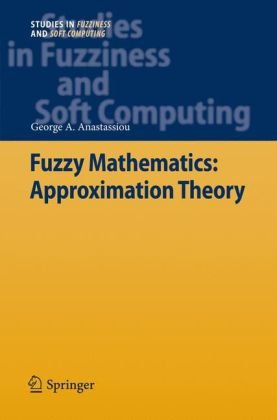

Most ebook files are in PDF format, so you can easily read them using various software such as Foxit Reader or directly on the Google Chrome browser.
Some ebook files are released by publishers in other formats such as .awz, .mobi, .epub, .fb2, etc. You may need to install specific software to read these formats on mobile/PC, such as Calibre.
Please read the tutorial at this link: https://ebookbell.com/faq
We offer FREE conversion to the popular formats you request; however, this may take some time. Therefore, right after payment, please email us, and we will try to provide the service as quickly as possible.
For some exceptional file formats or broken links (if any), please refrain from opening any disputes. Instead, email us first, and we will try to assist within a maximum of 6 hours.
EbookBell Team

4.8
14 reviewsThis monograph belongs to the broader area of Fuzzy Mathematics and it is the first one in Fuzzy Approximation Theory. The chapters are self-contained with lots of applications to teach several advanced courses and the topics covered are very diverse. An extensive background of Fuzziness and Fuzzy Real Analysis is given. The author covers Fuzzy Differentiation and Integration Theory followed by Fuzzy Ostrowski inequalities. Then results on classical algebraic and trigonometric polynomial Fuzzy Approximation are presented. The author develops a complete theory of convergence with rates of Fuzzy Positive linear operators to Fuzzy unit operator, the so-called Fuzzy Korovkin Theory. The related Fuzzy Global Smoothness is included. Then follows the study of Fuzzy Wavelet type operators and their convergence with rates to Fuzzy unit operator. Similarly the Fuzzy Neural Network Operators are discussed followed by Fuzzy Random Korovkin approximation theory and Fuzzy Random Neural Network approximations. The author continues with Fuzzy Korovkin approximations in the sense of Summability. Finally fuzzy sense differences of Fuzzy Wavelet type operators are estimated.
The monograph's approach is quantitative and the main results are given via Fuzzy inequalities, involving Fuzzy moduli of continuity, that is Fuzzy Jackson type inequalities.
The exposed theory is destined and expected to find applications to all aspects of Fuzziness from theoretical to practical in almost all sciences, technology, finance and industry. Also it has its interest within Pure Mathematics. So this monograph is suitable for researchers, graduate students and seminars of theoretical and applied mathematics, computer science, statistics and engineering.